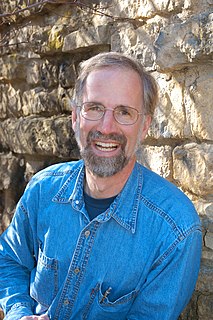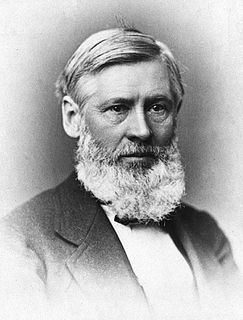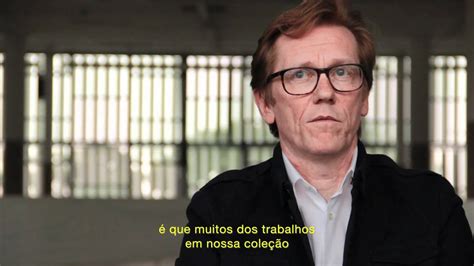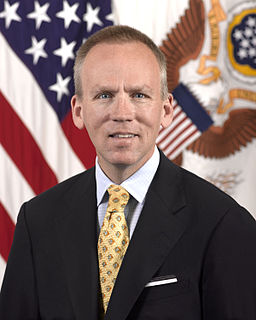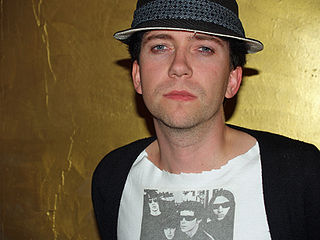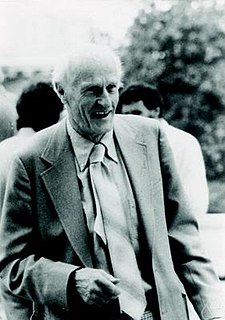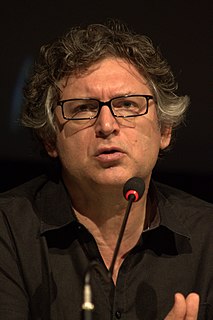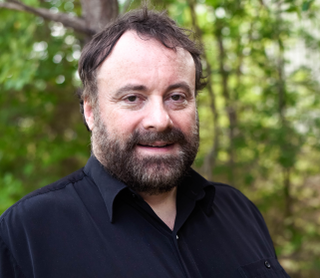Top 1200 Philosophical Questions Quotes & Sayings - Page 18
Explore popular Philosophical Questions quotes.
Last updated on November 19, 2024.
There is no doubt that healthy-mindedness is inadequate as a philosophical doctrine, because the evil facts which it refuses positively to account for are a genuine portion of reality; and they may after all be the best key to life's significance, and possibly the only openers of our eyes to the deepest levels of truth.
Governmental intervention and personal responsibility are not mutually exclusive issues, but they do frame a 'do it ourselves' vs. 'what are you doing for us' debate. For the black community, that's a debate that's been raging at least as far back as the W.E.B. Du Bois, Booker T. Washington philosophical grudge matches.
You are beyond frustrating," she grumbled. "Why can't you do what I ask you to do without issuing a million questions first?" "I could say the same of you." "I don't--Argh." She raised a fist at him. "So maybe I do ask a lot of questions. So what. Anyone in my position would do the same. Besides, I'm a girl and that's my job. You're a boy. You're supposed to pound your chest with your fists and grunt, then do everything in your power to please me." "Hardly. The man you just described is more likely to knock you over the head with a club and drag you away by the hair." -Annabelle and Zacharel
Others of us are lost. We're forever seeking. We torture ourselves with philosophies and ache to see the world. We question everything, even our own existence. We ask a lifetime of questions and are never satisfied with the answers because we don't recognize anyone as an authority to give them. We see life and the world as an enormous puzzle that we might never understand, that our questions might go unanswered until the day we die, almost never occurs to us. And when it does, it fills us with dread.
We have always dovetailed our cognition to our tools, but when our tools start dovetailing back, where do I end and where does the tool begin? It is going to be a really Twilight Zonish situation. It is definitely interesting. Once Google is in a blood cell sized device in our brain, do we become part Google? There are certainly interesting things to think about and provocative questions, but I don't think those provocative questions are going to do anything to slow down the onset of these technologies arriving and becoming even more pervasive.
The blues are important primarily because they contain the cultural expression and the cultural response to blacks in America and to the situation that they find themselves in. And contained in the blues is a philosophical system at work. And as part of the oral tradition, this is a way of passing along information.
At a time when threats to the physical environment have never been greater, it may be tempting to believe that people need to be mounting the barricades rather than asking abstract questions about the human place in nature. Yet without confronting such questions, it will be hard to know which barricades to mount, and harder still to persuade large numbers of people to mount them with us. To protect the nature that is all around us, we must think long and hard about the nature we carry inside our heads.
Artists have their existential questions as human beings, and they address these questions in their works. But they are also thinking in a broader sense when they participate in a social and political debate through their works. Often the most important voices of artists in the political and the social debate are focused on originality in their works. We can see this in historical pieces, like "Guernica" by Picasso. "Guernica" was an extremely important manifestation and critique against war, but it was important and powerful because it was also an incredibly original and powerful work of art.
I tried not to write about the O.J. Simpson case too much because so much has already been said about it, but there are a lot of questions left worth asking. However, the case is very useful to illustrate other points. The case is a common reference point because everybody knows the ins and outs of it, more than any other case in this generation, so it becomes useful to reference other points. In itself, there aren't that many questions about it that remain unanswered.
There are philosophical issues involved in that about choosing the right discount rate, the value, the future, and things like that which drive it. But its start with the premise that global warming is real and if you're a denier of that fact, then you're not going to find climate change mitigation policies to have particular appeal.
I literally feel like books saved my life. I found these people. Me reading Camus and Kafka, all of the tortured teenager stuff of someone who's falling in love with books. These people, these writers had the questions. They may not have had the answers, but they're not afraid to look at the questions head on. It was just life-changing for me. Yeah, books, honestly, I can't even tell you. I feel saved by books; I feel like they let me be who I was and find the world I wanted to be in.
When I had something I thought God was talking to me about, the first thing I did, before I ever talked to the congregation, was to sit down with the major influencers of the church and share with them what I thought God was speaking to me. I gave them time for input or questions. Many times they would ask questions and I would reply, "I need to spend more time on this. I'm not sure I'm thinking clearly there." Other times they added value and helped make this vision better or more accessible to the people.
All the songs are written from the perspective of a person, being me, who had trouble with some of the big questions in life, like, are we meant to be together with the same person for the rest of our lives? Or, is it frowned upon if a man goes through many women at all times? What is the meaning of love versus sex? It's just a lot of big questions, I guess, that are really difficult to answer. People see it very differently, but people sometimes suppress their lust. And it's not only sex. It could be lusting for anything that's supposedly very bad for you but can be good for you, too.
Why do leaders fail? Isolation and inability to learn. They are afraid to express doubt, admit vulnerability or seek advice from subordinates. Leaders must actively work to seek feedback and a reality check. They must be open to asking questions and framing issues. As the world becomes more complex and global, the risk of isolation becomes greater. The need for leaders to be open to learning becomes greater. Great leaders will need to ask the right questions and balance inquiry with advocacy.
Language, the machine of the poet, is best fitted for his purpose in its rudest state. Nations, like individuals, first perceive, and then abstract. They advance from particular images to general terms. Hence the vocabulary of an enlightened society is philosophical, that of a half-civilized people is poetical.
What truth? You see where truth is, and where untruth is, but I seem to have lost my sight and see nothing. You boldly settle all important questions, but tell me, dear, isn't it because you're young, because you haven't had time to suffer till you settled a single one of your questions? You boldly look forward, isn't it because you cannot foresee or expect anything terrible, because so far life has been hidden from your young eyes? You are bolder, more honest, deeper than we are, but think only, be just a little magnanimous, and have mercy on me.
I have never entered into any controversy in defense of my philosophical opinions; I leave them to take their chance in the world. If they are right, truth and experience will support them; if wrong, they ought to be refuted and rejected. Disputes are apt to sour one's temper and disturb one's quiet.
Increasingly, our leaders must deal with dangers that threaten the entire world, where an understanding of those dangers and the possible solutions depends on a good grasp of science. The ozone layer, the greenhouse effect, acid rain, questions of diet and heredity. All require scientific literacy. Can Americans choose the proper leaders and support the proper programs if they themselves are scientifically illiterate? The whole premise of democracy is that it is safe to leave important questions to the court of public opinion - but is it safe to leave them to the court of public ignorance?
I feel very strongly that I am under the influence of things or questions which were left incomplete and unanswered by my parents and grandparents and more distant ancestors. It often seems as if there were an impersonal karma within a family which is passed on from parents to children. It has always seemed to me that I had to answer questions which fate had posed to my forefathers, and which had not yet been answered, or as if I had to complete, or perhaps continue, things which previous ages had left unfinished.
I think a lot of people do have questions about life, 'What's the purpose of my life?', 'What's the meaning of my life?', 'Why am I here?' ... It's hard to find a place where you can discuss those issues. You can't go down to the pub and say, 'What do you think the meaning of life is?' But actually, most people have those questions, somewhere in the back of their minds. And if you can find a place where you can discuss it with a group of people who, like you, are outside of the Church, and it's a non-threatening, relaxed environment, quite a lot of people want to do that.
The Second Amendment's language and historical and philosophical background demonstrated that it was designed to guarantee individuals the possession of certain kinds of arms for three purposes: (1) crime prevention or what we would today describe as self-defense; (2) national defense; and (3) preservation of individual liberty.
















